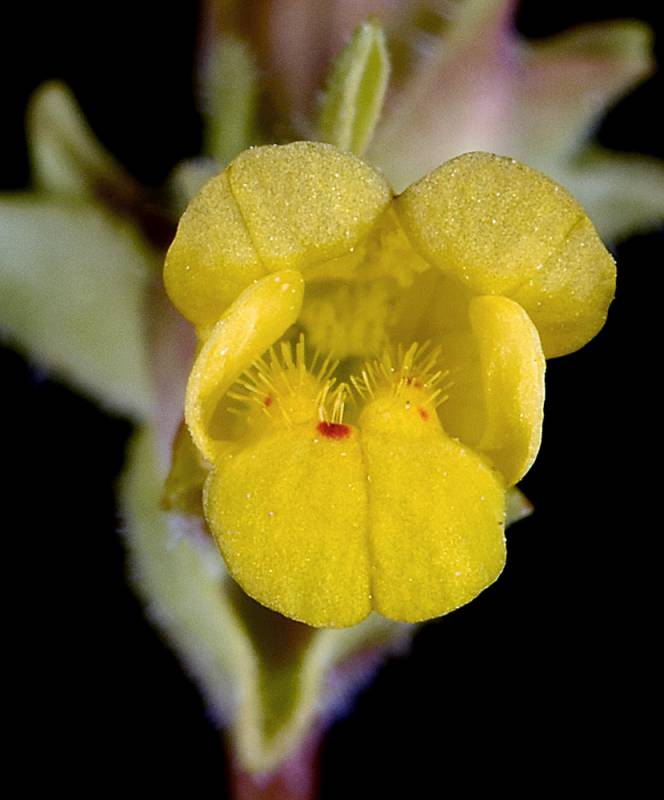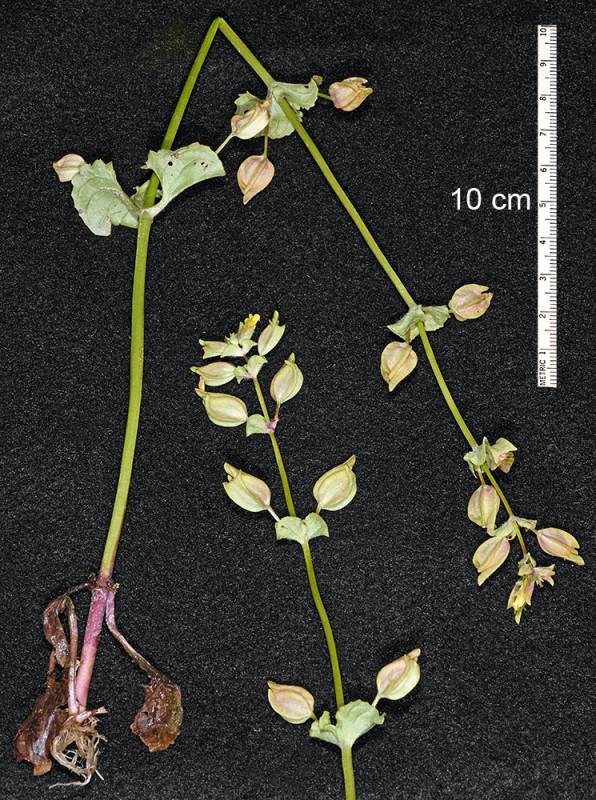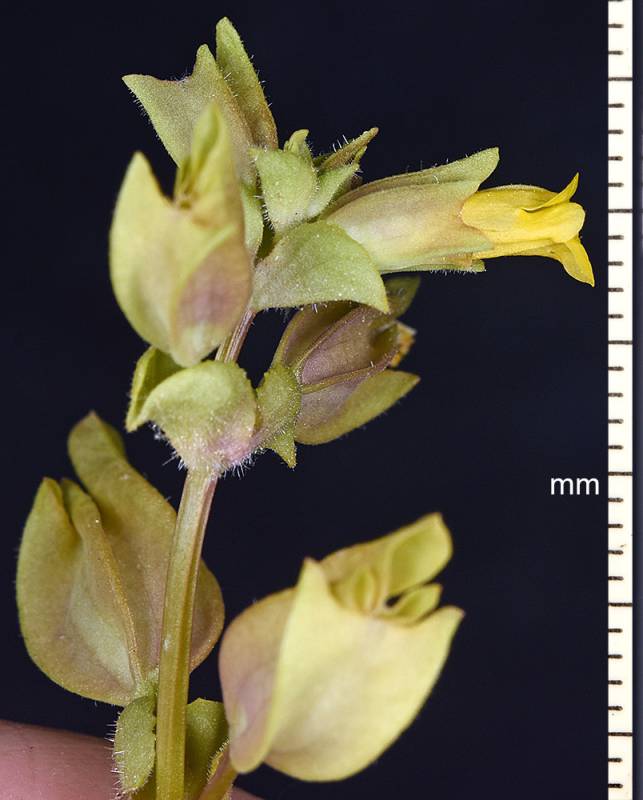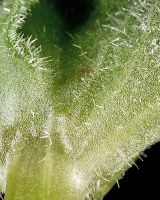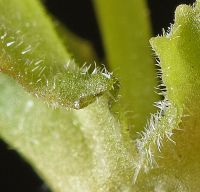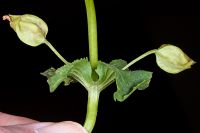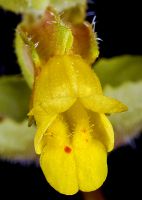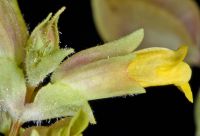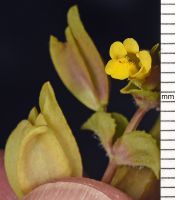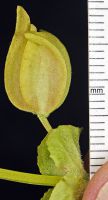Distribution: Occurring east of the Cascades crest in Washington; southern British Columbia to California, east to southern Idaho, Utah, and Nevada, disjunct in west-central Montana.
Habitat: Open slopes and stream bank.;
Flowers: May-July
Origin: Native
Growth Duration: Annual
Conservation Status: Not of concern
Annuals with fibrous roots or taproots, sometimes rooting at nodes near base if decumbent; stems 5-70 cm, erect to decumbent-ascending, unbranched or branching at medial to proximal nodes, generally with 4 angles, hollow or very narrow, glabrous, sometimes with coarse and stiff pubescence in inflorescence, hairs without glands bending backwards.
Leaves basal and cauline, or basal leaves may not persist, mid-stem or higher leaves often largest and becoming smaller distally; petiolate, petioles 3-20, distally sessile; blade ovate to orbicular to oblong, middle and distal cauline leaves may be orbicular to nearly reniform, generally 10-35 mm long and 6 to 26 broad, 3-5 palmately-arranged veins, earlobe-like appendages near base, base rounded to truncate to slightly cordate, margins distinctly toothed to nearly entire, larger plants show lower leaves lacerate lobed to pinnatifid margin bases, apex rounded, surfaces glabrous except bracts densely villous beneath and occasionally above, long eglandular hairs flattened and sometimes transparent.
Axillary flowers generally 3-8, emerging from distal-most nodes; fruiting pedicels eglandular and smooth, longer than subtending leaves, typically 5-40 mm; calyx sometimes with red dots, ovate to campanulate, inflated, compressed along sagittal plane, 9-14 mm, slightly hirtellous, throat sometimes closed or open, lobes curving upward weakly, top lobe not significantly longer than lower lobe, not distinctly curved; corollas yellow, commonly with red spots, weak bilateral symmetry or near radial symmetry, slightly bilabiate or almost regular; tube-throat cylindric to funnel-shaped, 8-12 mm, protruding 1-2 mm past calyx margin; limb expanded 5-10 mm; styles glabrous; anthers not protruding, glabrous.
Capsules 6-7 mm, included, stalked.
Publication: Phytoneuron 2012–39: 43. 2012.
PNW Herbaria: Specimen records of Erythranthe arvensis in the Consortium of Pacific Northwest Herbaria database
WA Flora Checklist: Erythranthe arvensis checklist entry
OregonFlora: Erythranthe arvensis information
E-Flora BC: Erythranthe arvensis atlas page
CalPhotos: Erythranthe arvensis photos

